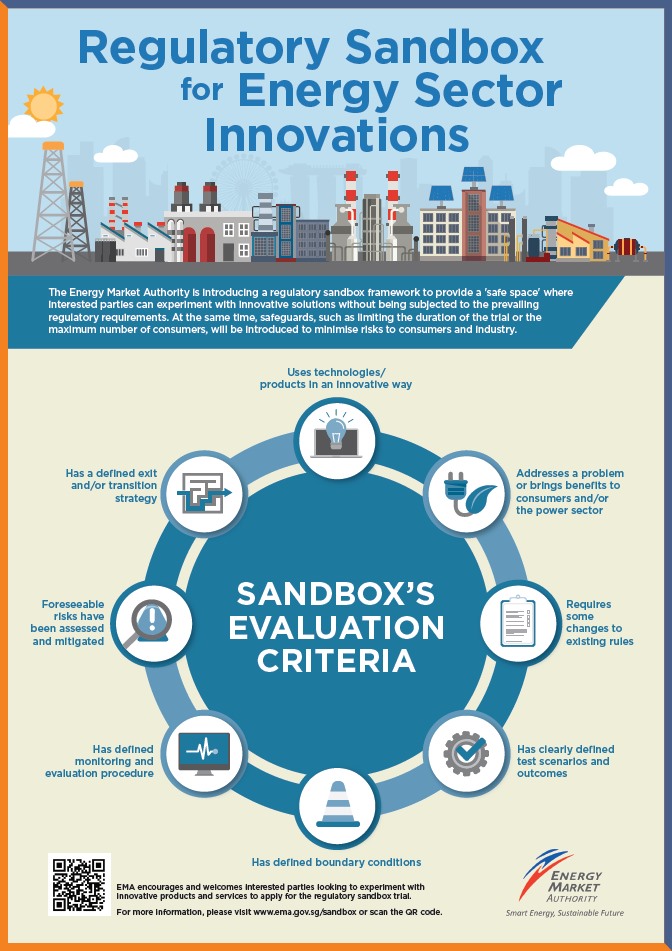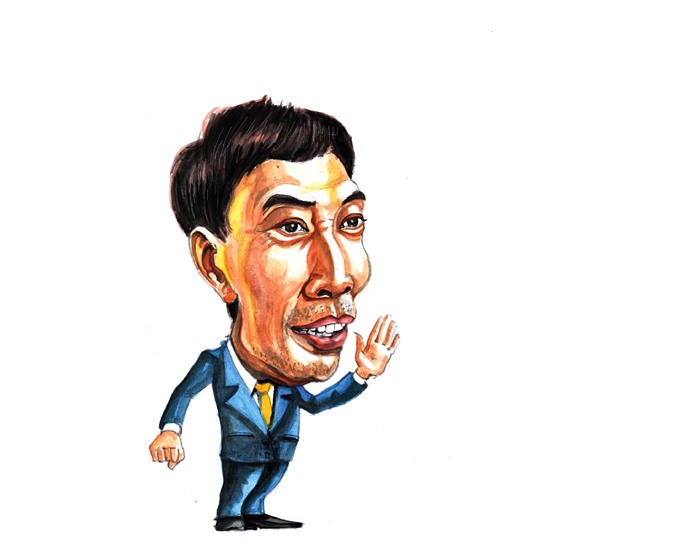 Economy
Economy

The Fourth Industrial Revolution has not only had deep impact on all aspects of life but also rapidly changed the way businesses create and distribute products and services as well as the interaction between the market and the State.
 |
| Regulatory Sandbox tool is applied to support innovations in energy sector in Singapore. — Source: ema.gov.sg |
Analyst’s Pick
By Võ Trí Thành*
The Fourth Industrial Revolution has not only had deep impact on all aspects of life but also rapidly changed the way businesses create and distribute products and services as well as the interaction between the market and the State.
 |
| Võ Trí Thành |
In a hyper-connected world, advanced technologies like Internet of Things, blockchain and Artificial Intelligence have been transforming the traditional market, thus challenging policymakers to keep up with the pace.
In order to ensure the digital economy truly promotes efficiency, innovation and development, it is necessary to develop policies and regulations to adapt to the market. We may agree in principle of regulatory policies and regulations. That ensures the spirit of innovation on the basis of healthy and fair competition, the overall socio-economic benefits, especially those of consumers, and the State’s interests.
However, designing and implementing such appropriate regulatory policies and regulations are not simple tasks.
For example, there are still ambiguities about the nature of service providers such as Uber, Grab, Airbnb: they are taxi companies and hotels, or just technology and software companies?
In addition to creating infrastructure platforms that provide super-connectivity, openness and data security, we must be fully aware of how to deal with the fast-moving market. New business models have appeared with few good regulatory practices for reference, therefore assessment on multi-dimensional impact of the new business models is also difficult, not to mention the cost of conversion.
More concerning, the challenge lies in the nature of the digital economy, and further research is needed.
Firstly, goods and services are digitised, not only in the way they are created but also in the way they are delivered and consumed. The movement of each sector such as health care, education, insurance, finance is also altered. In the platform economy, the role and property rights of many stakeholders also changes. In addition to the company-centred business model, the crowd-centric model is emerging. They are creating loopholes in the legal and regulatory frameworks in terms of taxation, social security and dispute resolution.
Secondly, data - an essential infrastructure in digital economics - has very different characteristics than conventional goods and services. While the value of the data is hard to determine, there is no doubt that the value of the data will increase with the growth of data networks.
Thirdly, the internet is borderless, providing access to global markets at low cost. But it is also more challenging to control and monitor issues such as network security, privacy, tax collection, especially for the developing economies.
This is very challenging! However, it does not mean it is impossible for us to have a proper "playing rules" to ensure that the process of conversion to the digital economy are implemented at a better manner and as best as possible.
First of all, we need to change radically the approach to governance and ways of making policies and building regulations.
In a super-connected world with the rise and rapid development of the digital economy, a prominent feature of effective governance is speed.
Speed is not everything but very important. With the fast changing pace, the process of setting rules and standards must be in tune with technological improvements.
Regulators and policymakers must be flexible enough to respond quickly to changes without distracting from the overall goal and the shared values. With the shift of technology, they have to be able to adjust the direction in "real time".
For the effective policy-making process, it is significant to be open to the views and recommendations of all stakeholders.
Policymakers need to quickly develop ideas, implement them through experimentation, draw lessons and apply them more broadly. This is called “regulatory sandboxes”.
The word sandbox originally referred to the small box filled with sand where children play and experiment in a controlled environment. But little by little, the term has acquired new meanings. In the computer science world, a sandbox is a closed testing environment designed for experimenting safely with web or software projects.
According to Dr Pēteris Zilgalvis, Head of Unit, Digital Innovation and Blockchain, Digital Single Market, DG CONNECT, European Commission, one of advantages of regulatory sandbox is that it creates a "safe space" in which businesses can test innovative products, services, business models and delivery mechanisms in the context of regulation, with regulators. “The sandbox framework enables firms to manage regulatory risks during the testing stage.”
Regulatory sandboxes are widely used in areas such as fintech, blockchain, data, municipal services, automated transport and drones. The tool is primarily been experimented on in the financial sector due to its intrinsic highly regulated nature. Hong Kong and Singapore are Asian economies that have started using this tool.
Ivo Jenik, Financial Sector Specialist at the Consultative Group to Assist the Poor, said “While there are good reasons to explore regulatory sandboxes, policymakers should be prepared to face challenges.”
“Operating a regulatory sandbox requires adequate human and financial resources to select proposals, provide guidance, oversee experiments and evaluate innovations.”
However, the resources might not be always available in emerging and developing economies.
In conclusion, making policies and building regulations is a challenge for all governments during the Fourth Industrial Revolution. The process of building standards for the internet and digital economy requires the common efforts of policymakers, politicians, businessmen and negotiators, and civil society. In the present term, it is "crowd wisdom.”
* Võ Trí Thành is a senior economist at the Central Institute for Economic Management (CIEM) and a member of the National Financial and Monetary Policy Advisory Council. The holder of a doctorate in economics from the Australian National University, Thành mainly undertakes research and provides consultation on issues related to macroeconomic policies, trade liberalisation and international economic integration. Other areas of interest include institutional reforms and financial systems.




